第69章 VOLUME I(69)
Ought any, then, to refuse their aid in doing what good the good of the whole demands? Shall he who cannot do much be for that reason excused if he do nothing? "But," says one, "what good can I do by signing the pledge? I never drank, even without signing." This question has already been asked and answered more than a million of times. Let it be answered once more. For the man suddenly or in any other way to break off from the use of drams, who has indulged in them for a long course of years and until his appetite for them has grown ten or a hundredfold stronger and more craving than any natural appetite can be, requires a most powerful moral effort. In such an undertaking he needs every moral support and influence that can possibly be brought to his aid and thrown around him. And not only so, but every moral prop should be taken from whatever argument might rise in his mind to lure him to his backsliding. When he casts his eyes around him, he should be able to see all that he respects, all that he admires, all that he loves, kindly and anxiously pointing him onward, and none beckoning him back to his former miserable "wallowing in the mire."
But it is said by some that men will think and act for themselves; that none will disuse spirits or anything else because his neighbors do; and that moral influence is not that powerful engine contended for. Let us examine this. Let me ask the man who could maintain this position most stiffly, what compensation he will accept to go to church some Sunday and sit during the sermon with his wife's bonnet upon his head? Not a trifle, I'll venture. And why not? There would be nothing irreligious in it, nothing immoral, nothing uncomfortable--then why not? Is it not because there would be something egregiously unfashionable in it? Then it is the influence of fashion; and what is the influence of fashion but the influence that other people's actions have on our actions--the strong inclination each of us feels to do as we see all our neighbors do? Nor is the influence of fashion confined to any particular thing or class of things; it is just as strong on one subject as another. Let us make it as unfashionable to withhold our names from the temperance cause as for husbands to wear their wives' bonnets to church, and instances will be just as rare in the one case as the other.
"But," say some, "we are no drunkards, and we shall not acknowledge ourselves such by joining a reformed drunkard's society, whatever our influence might be." Surely no Christian will adhere to this objection. If they believe as they profess, that Omnipotence condescended to take on himself the form of sinful man, and as such to die an ignominious death for their sakes, surely they will not refuse submission to the infinitely lesser condescension, for the temporal, and perhaps eternal, salvation of a large, erring, and unfortunate class of their fellow-creatures. Nor is the condescension very great. In my judgment such of us as have never fallen victims have been spared more by the absence of appetite than from any mental or moral superiority over those who have. Indeed, I believe if we take habitual drunkards as a class, their heads and their hearts will bear an advantageous comparison with those of any other class.
There seems ever to have been a proneness in the brilliant and warm-blooded to fall into this vice--the demon of intemperance ever seems to have delighted in sucking the blood of genius and of generosity. What one of us but can call to mind some relative, more promising in youth than all his fellows, who has fallen a sacrifice to his rapacity? He ever seems to have gone forth like the Egyptian angel of death, commissioned to slay, if not the first, the fairest born of every family. Shall he now be arrested in his desolating career? In that arrest all can give aid that will; and who shall be excused that can and will not?
Far around as human breath has ever blown he keeps our fathers, our brothers, our sons, and our friends prostrate in the chains of moral death. To all the living everywhere we cry, "Come sound the moral trump, that these may rise and stand up an exceeding great army." "Come from the four winds, O breath! and breathe upon these slain that they may live." If the relative grandeur of revolutions shall be estimated by the great amount of human misery they alleviate, and the small amount they inflict, then indeed will this be the grandest the world shall ever have seen.
Of our political revolution of '76 we are all justly proud. It has given us a degree of political freedom far exceeding that of any other nation of the earth. In it the world has found a solution of the long-mooted problem as to the capability of man to govern himself. In it was the germ which has vegetated, and still is to grow and expand into the universal liberty of mankind. But, with all these glorious results, past, present, and to come, it had its evils too. It breathed forth famine, swam in blood, and rode in fire; and long, long after, the orphan's cry and the widow's wail continued to break the sad silence that ensued. These were the price, the inevitable price, paid for the blessings it bought.